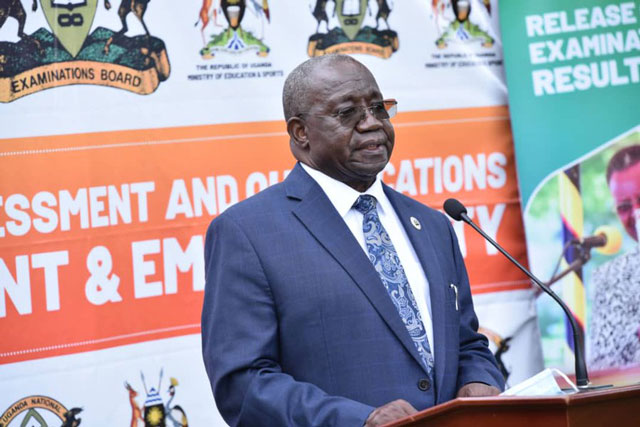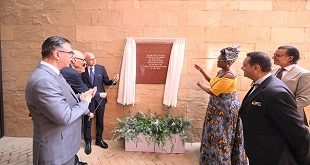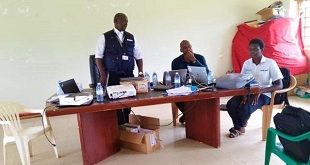
Kampala, Uganda | THE INDEPENDENT | The Uganda National Examinations Board (UNEB) has taken steps to address the concerns raised by many schools regarding fees defaulters accessing examination results. UNEB however stressed that all candidates should be allowed to sit exams, irrespective of their status.
In response to complaints that UNEB was not effectively blocking defaulters, Dan Odongo, Executive Director of UNEB, acknowledged past system challenges that allowed some candidates to access their results despite being blocked. However, he emphasized that the board recently updated and upgraded its system to rectify this issue.
Odongo expressed empathy for candidates who are prevented from taking exams due to unpaid fees but underscored the financial burden placed on schools for teaching and preparing the students.
Over the years, there has been public outcry over schools barring registered candidates from sitting exams because of unpaid fees, with schools arguing that many learners refuse to clear their fees even after taking the exams.
In the past, schools used examination results as leverage to ensure fee clearance, but UNEB introduced SMS services as an alternative for candidates to obtain their results.
Schools were told they could collaborate with UNEB to block defaulters from the SMS service by sharing the defaulters’ names through the UNEB portal.
However, there have been instances where this process did not work as intended. The glitches in the UNEB system eroded trust among some schools, leading them to choose to block candidates with outstanding balances from taking exams.
Schools also complained that the results of defaulting students were occasionally shared with other schools during the national selection and placement process, and students with balances were accessing their results from these lists.
To address these concerns, Odongo revealed that UNEB is actively working to ensure that the results of defaulting students are not shared during the national selection and placement processes.
The national selection and placement process occurs after the release of exam results, allowing schools and institutions to choose students for admission at various levels, including senior one, senior five, and tertiary and university admissions.
With these initiatives in place, Odongo emphasized that schools have no justification for blocking registered candidates from taking their exams. He reminded them that the new UNEB Act now considers denying a student the opportunity to take an exam due to unpaid school fees as an offense, as it disrupts the national examination process. Notably, a headteacher in Kampala recently faced charges and was remanded for blocking S4 candidates on these grounds.
The issue of school fees has been a significant concern during the briefing of the primary seven candidates on Tuesday. For example, at Decorous Nursery and Primary School in Kawempe, it was revealed that several learners had not yet paid their school fees.
Monica Kizito, the headteacher, stated that the school has allowed learners with unpaid fees to sit for their exams, with parents agreeing to a payment schedule. She also mentioned that the names of these students will be shared with UNEB.
Meanwhile, the Uganda National Examinations Board-UNEB has issued a crucial advisory to local government authorities, emphasizing the importance of their role in guaranteeing a seamless distribution of the Primary Leaving Examination (PLE) papers. With primary education decentralized, local governments play a pivotal role even in the examination process.
For instance, they oversee the distribution of papers from storage facilities to examination centers. Dan Odongo, the Executive Director of UNEB, stressed the sensitivity of the distribution process and called upon local governments to provide the necessary logistics for a secure and trusted transportation mechanism.
Odongo made the remarks during the commissioning of the PLE and UACE examinations on Friday afternoon. PLE has commenced today with a briefing of candidates, while UACE candidates will be briefed on Friday this week. During the address, the Executive Director urged local governments to carefully select individuals, preferably existing local government workers in relevant departments, to ensure accountability in the distribution role. He expressed concern over instances where the distribution task had been entrusted to individuals without the necessary credentials, such as boda boda riders, risking the integrity of the examination papers.
While UNEB has been actively combating examination leakage, the distribution process has remained a vulnerable point. Often, unscrupulous schools exploit this weakness, copying examination content while it is in transit. This illicit practice is most prevalent in rural areas, where storage facilities are opened earlier, with culprits sharing examination content through social media and other means.
During last year’s PLE a school head in Wakiso was apprehended red-handed in Mpigi district, having paid distributors to gain access to PLE papers hours before the examination. The headteacher and the distributor were intercepted as they were about to share the examination content on WhatsApp.
UNEB’s efforts to combat malpractice have been bolstered by new legislation imposing severe penalties on those found guilty of such activities.
Suspects have been actively pursued, leading to numerous court appearances and convictions. In addition to addressing distribution issues, Odongo urged vigilance among district monitors, scouts, and invigilators to curb other forms of malpractice more so those that happen during the examination.
On this matter, he also cautioned invigilators not to participate in or cover up malpractice, as they could be held liable under examination laws if UNEB provided evidence of malpractice occurring at the centers where they were deployed.
In the ongoing UCE examinations, several invigilators have been arrested in connection with malpractice. Some have claimed ignorance, but Uneb maintains that in certain forms of malpractice, invigilators may be complicit. According to the law, convicted invigilators abetting malpractice face up to five years of imprisonment or a fine of 20 million Shillings.
To ensure the smooth field conduct of PLE, UNEB has enlisted the assistance of 139 district monitors, 11,758 scouts, 10,664 chief invigilators, and 30,059 invigilators. Additionally, a significant number of security personnel have been deployed across the country to support the exercise and safeguard the examination, field officers, and candidates.
In this year’s Primary Leaving Examination (PLE), a total of 749,347 candidates were registered from 14,442 examination centers. Additionally, 69 candidates among those registered are inmates from Upper Prison School Luzira, and 2,580 are candidates with Special Needs. Of the total candidate pool, females represented 52%, totaling 391,558 candidates, while males made up the remaining 48%, amounting to 357,789 candidates.
The majority of the examination centers, accounting for 79%, were Universal Primary Education (UPE) schools, accommodating a total of 501,619 candidates. The remaining 21% of centers, classified as Non-UPE centers, hosted 247,728 candidates. Overall, 70% of the candidates received funding through the Universal Primary Education (UPE) Program, while the remaining 30% were privately sponsored, with 249,041 candiates falling into the non-UPE category.
 The Independent Uganda: You get the Truth we Pay the Price
The Independent Uganda: You get the Truth we Pay the Price



Thanks to UNEB for the great idea of blocking the results of school fee defaulters.
Now that uneb results are about to be released. What is the uneb’s move of letting the schools forward the fees defaulters. We need to know the procedures in time.
How to block all fees defaulters from accessing their PLE results 2023?